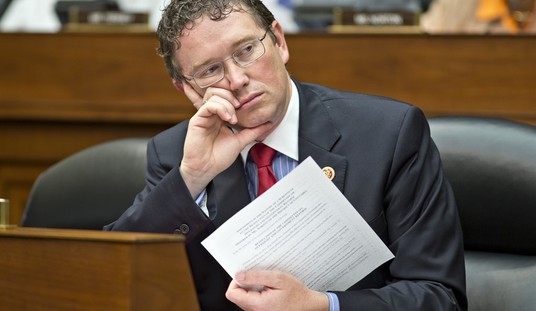First they came for the Lorax, and I said nothing…
There’s no proof yet that the White House omitted any reference to Dr. Seuss deliberately from today’s announcement. It could be an oversight; no doubt Jen Psaki will be asked this afternoon. But presidential proclamations marking the day do typically mention him since it’s his birthday and “Read Across America Day” was designated for this date by the NEA for that reason. Michelle Obama marked the occasion 11 years ago by reading “The Cat in the Hat” to a group of kids.
And so we’re left to wonder: Did Team Biden innocently overlook a mention of Seuss this year or is he en route to some sort of “soft-canceled” status in which his works — most of them, anyway — don’t quite disappear but are no longer acknowledged by the governing class due to “problematicness”?
The NEA has pivoted from popular children’s author Dr. Seuss to a focus on diverse children’s books, a decision that has generated controversy on social media.
While President Joe Biden noted in his Read Across America Day presidential proclamation that “for many Americans, the path to literacy begins with story time in their school classroom” – and that the day was an important recommitment to the goal of national reading comprehension – he differed from Presidents Donald Trump and Barack Obama in leaving out Dr. Seuss’s name.
“There’s a growing need for schools and libraries to include and promote diverse books,” the NEA now says about Read Across America Day. “Students need books that provide both windows and mirrors if we are going to create more readers, writers, and people who feel included and recognized, and who understand that the world is far richer than just their experiences alone.” That’s the strongest evidence that the White House’s omission is intentional. If the NEA is steering away from Seuss in favor of more diverse authors, presumably Team Biden is following their lead. Conceivably they even got a heads up that Dr. Seuss Enterprises would soon be announcing that it’ll no longer publish six of Seuss’s books due to racism in the presentation of minorities.
Imagine if Biden had issued a proclamation urging parents to read some Seuss to their kids on the same day that Seuss’s estate was declaring, “No, seriously, some of these books are messed up.”
If you read Ed’s post earlier about that story and want to get a flavor for the sort of imagery that’s caused trouble, scroll through this series of war-era cartoons and ads drawn by Seuss. The black/islander characters in particular are basically just monkeys in grass skirts. The debate isn’t (or shouldn’t be) whether some of Seuss’s imagery is racist, the debate as always in matters like this is how much allowance should be made for Seuss being a man of his times and how slippery the slope might be in declaring his works verboten once the cancelers get rolling. No one worries overly much about seeing sub-Sambo depictions of African figures flushed down the memory hole. This is what they’re worried about:
Quite a sentence here:https://t.co/2nIL4hTF9V pic.twitter.com/dZ6dUj5Eco
— Ross Douthat (@DouthatNYT) March 2, 2021
Cancellation has a momentum all its own and that momentum doesn’t always follow logic.
I wouldn’t memory-hole the racist Seuss stuff. I’d treat his work denigrating people of color the same way “Gone With the Wind” was treated, with a new introduction pointing out the problem and contextualizing his work within the prejudice of the times in which it was created. Like GWTW, Seuss is simply too big to cancel; a cultural touchstone that iconic can’t lightly be disposed of. Keep the books on the market and make clear somehow on the packaging that there are sensitive images inside. If parents want to go forward anyway, that’s on them.
And needless to say, none of that is justification for canceling his entire oeuvre. That’s another question for Psaki this afternoon: If the White House excised Seuss from the proclamation, was it because of the genuinely racist images in some of his work or, as Ed noted, was it for the gassier reason that Seuss’s work wasn’t demographically representative of the population due to its dearth of characters who are women of color? Does the administration draw the line at racist sins of commission or is it looking for sins of omission as well?
I’ll leave you with Donald Trump Jr addressing the momentum I mentioned above. The most common complaint about cancel culture by far is “Where does it end?” Where does it?
AINSLEY EARHARDT: There's this cancel culture trying to cancel Dr. Seuss now. How far are they going to take this?
DON JR: This week alone, they canceled Mr. Potato Head. This week alone, they canceled the Muppets … you have Oreo cookie chiming in on trans rights pic.twitter.com/4fqUaBUmik
— Aaron Rupar (@atrupar) March 2, 2021








Join the conversation as a VIP Member